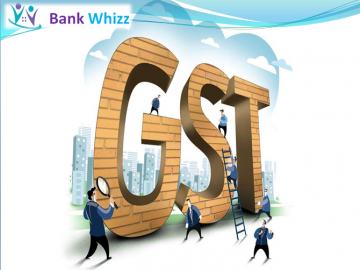
Note: Some Essays seem to be obsolete; however, their patter will help you write newer essays a lot.
Memorable Points to be elaborated:
- Brief Introduction to GST
- Historical Background of GST
- Evaluation of GST
- Benefits of GST
- Challenges on the way to GST
- Conclusion
Brief Introduction to GST
The Goods and Services Tax (GST) is a value added tax that will replace all indirect taxes levied on goods and services by the Government, both Central and States. It will work on the slogan ‘One India one Tax’. In other words it will replace Service Tax, Excise Duty, Custom Duty and State Indirect Taxes. Further the GST will be on the supple of goods and services right from the manufacturer to the end consumer. Its rate is expected to be around 14-16 percent.
Historical Background of GST
Observing the benefits of GST, more than 160 countries have implemented this system of Taxation in some form or other. It is France which was the first to introduce GST. Canada has dual GST model which India is going to follow.
Evolution of GST in India
GST was first recommended by the Kelkar Committee Tast Force subsuming Central, State Taxes and interstate taxation based on VAT Principle. Then in the year 2015, based on the recommendations of Asim Das Gupta Committee, State Level VAT was introduced replacing Sales Tax, Turnover Tax and Surcharge on Sales Tax at State Level. At present the GST Bill has already been passed under the 122nd Constitution Amendment Bill by both Loksabha and Rajyasabha.
Benefits of GST
The introduction of GST is the need of changing global economy. Every developed economy is following this tax regime. The following benefits will be recorded:
- When all the taxes are integrated, it would make possible the taxation burden to be split equitably between manufacturing and services.
- It will help build a transparent and corruption-free tax administration.
- Business will become easier and red-tapism will end.
- It will help in plugging the leakage in Tax Collection by making it simple and systematic.
- It will boost the growth of the country. According to various world agencies, ‘India’s growth will get impetus on the global scale after the introduction of GST.’
- It will bring down the overall tax burden for the consumers.
- The GST to be imposed on goods will be on the basis of their nature. The GST would be less on essential commodities whereas it will be more on luxurious and hazardous goods.
- The GST will be anti-dote to Inflation.
- It will bring in a lot unorganized sector of the economy within the mainstream.
- By eliminating tax evasion, the Indian Government will have more money to invest in country’s growth.
- India’s GDP will get increased by .9 to 1.2 percentage points.
Challenges on the way to GST
India has adopted the Canadian dual GST Model. It has following challenges which the country is facing:
- It is a great challenge for the Central Government to bring majority from the states of the country.
- The government has already incorporated Goods and Service Tax Network (GSTN) which has to develop GST portal. The GST portal will ensure technology support for registration, return filing, tax payment, IGST settlements etc. thus there should be a robust IT backbone.
- GST is absolutely different from existing system. It, therefore requires that tax administration staff at both Centre and State to be trained properly in terms of concept, legislation and Procedure.
- The purpose of additional levy is to compensate states for loss of revenue while moving to GST. We acknowledge that fundamental purpose of GST is to make “India” as one state where inter-state movement of goods is common. In this situation, it would defeat the very purpose of GST in the country.
Conclusion
India is a fast developing country in the world and in this situation, the country must implement GST so as to compete with the developed world. At present, the country finds itself in such a position that can help it implement this effective taxation system successfully. It is fast adapting itself to the introduction of GST on all fronts.



